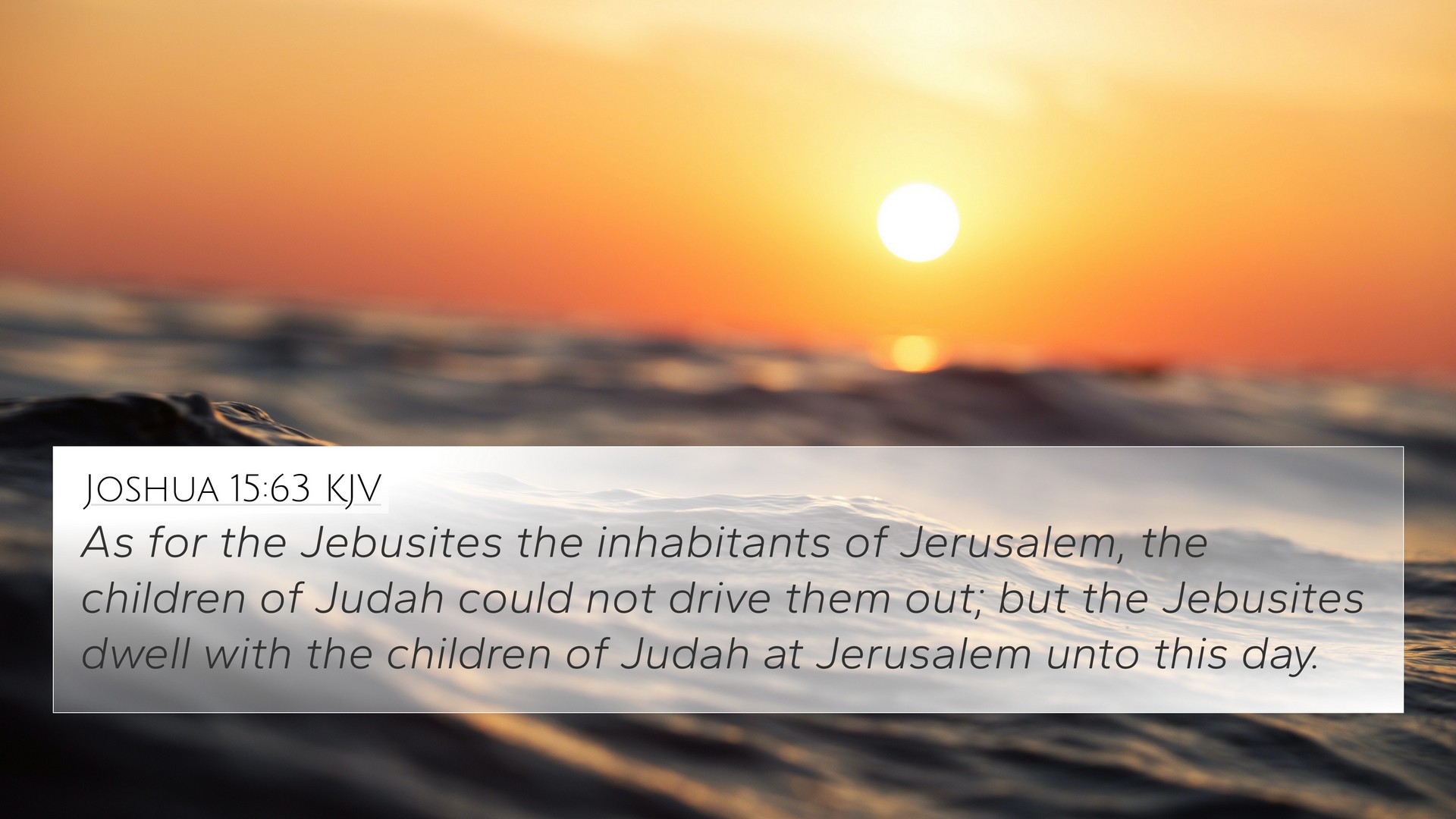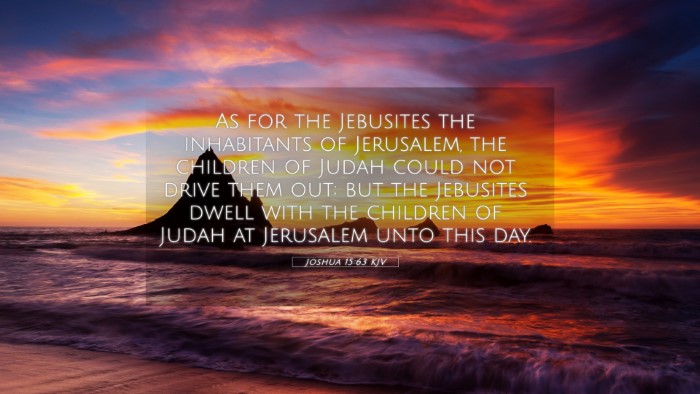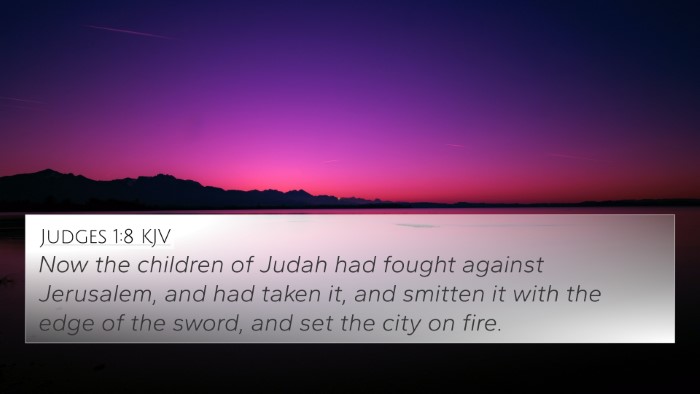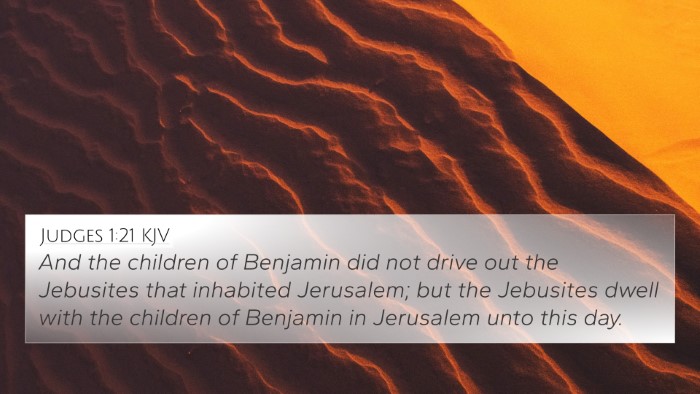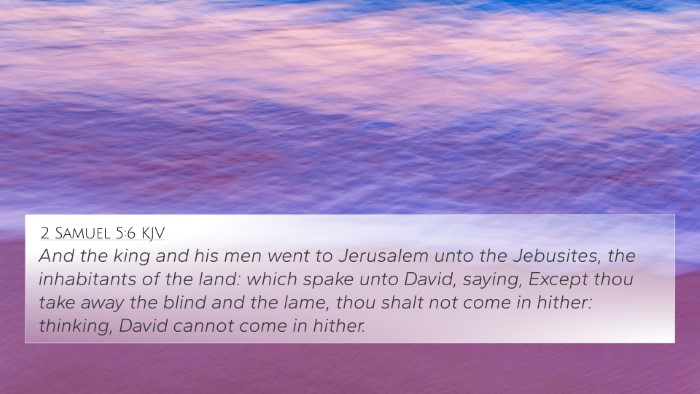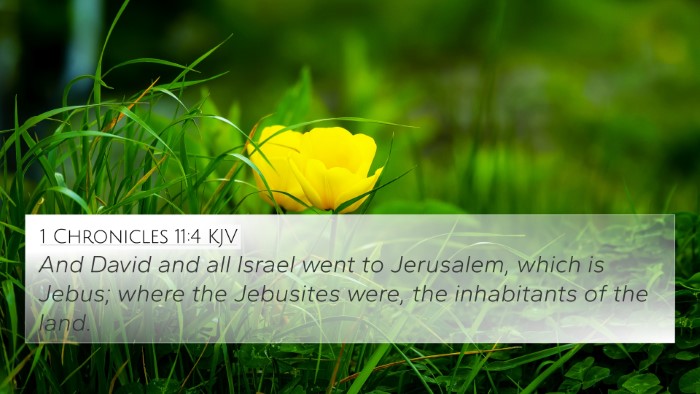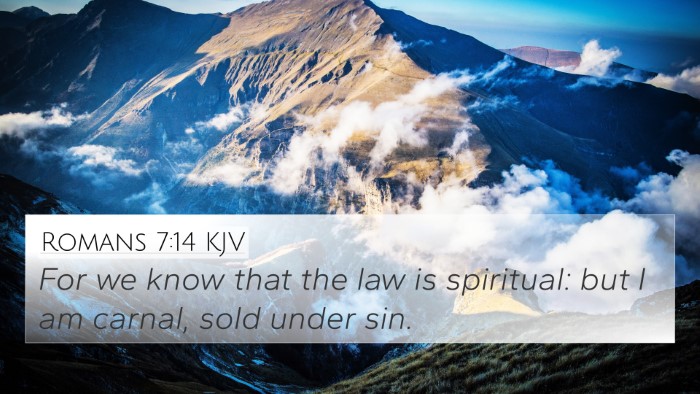Bible Verse: Joshua 15:63
Joshua 15:63 states, "As for the Jebusites, the inhabitants of Jerusalem, the children of Judah could not drive them out: but the Jebusites dwell with the children of Judah at Jerusalem unto this day."
This verse notes the inability of the tribe of Judah to conquer Jerusalem, particularly the Jebusites who occupied the city. It highlights the ongoing presence and significance of these inhabitants in the narrative of the Israelites' conquest of Canaan.
Insights from Commentaries:
-
Matthew Henry:
Matthew Henry reflects on the Jebusites as a symbol of Israel's incomplete conquest of the Promised Land. He argues that their continued presence shows the failure of Judah to fully obey God’s commands in driving out the inhabitants as ordered, symbolizing a larger truth that disobedience can lead to future conflicts.
-
Albert Barnes:
Albert Barnes emphasizes the historical implications of the Jebusites remaining in Jerusalem. He describes the city of Jerusalem as a stronghold that later becomes significant in biblical history, particularly as the future capital of Israel under King David. He interprets the continued coexistence of the Jebusites as a sign of God's sovereignty, allowing them to remain until a time He deems appropriate for their removal.
-
Adam Clarke:
Adam Clarke notes that the inability to drive out the Jebusites showcases the nature of the spiritual battle facing the Israelites. He draws a parallel to the necessity of spiritual victories, indicating that physical might alone is insufficient without divine favor. Clarke also comments on the significance of Jerusalem, elucidating its eventual reclamation in David's reign as a pivotal moment in biblical history.
Thematic Connections:
This verse offers various connections with other scripture through its themes of conquest, disobedience, and the permanence of certain challenges in life. Below are several related verses that echo or provide contrast to the message of Joshua 15:63:
- Judges 1:21 - "And the children of Benjamin did not drive out the Jebusites that inhabited Jerusalem; but the Jebusites dwell with the children of Benjamin in Jerusalem unto this day." This verse reinforces the theme of Israel’s struggles to fully reclaim the land.
- 2 Samuel 5:6-9 - "And the king and his men went to Jerusalem unto the Jebusites, which were the inhabitants of the land: which spake unto David, saying, 'Thou shalt not come hither.'" This recounts David’s eventual conquest of the Jebusites, showcasing God’s faithfulness in delivering Jerusalem into the hands of His chosen leader.
- Exodus 23:23-24 - "For mine Angel shall go before thee, and bring thee in unto the Amorites, and the Hittites, and the Perizzites, and the Canaanites, and the Hivites, and the Jebusites: and I will cut them off." This verse highlights God’s original promise to aid Israel in conquering the land.
- 1 Chronicles 11:4-6 - "And David and all Israel went to Jerusalem, which is Jebus: where the Jebusites were, the inhabitants of the land..." This further narrates the significance of Jerusalem and connects to David’s kingship.
- Joshua 1:3-5 - "Every place that the sole of your foot shall tread upon, that have I given unto you, as I said unto Moses." This reiterates God’s promise of land to the Israelites, illustrating the importance of obedience in claiming that promise.
- Deuteronomy 7:1-2 - "When the LORD thy God shall bring thee into the land whither thou goest to possess it, and hath cast out many nations before thee..." This sets the stage for understanding God’s commands regarding the inhabitants of Canaan.
- Romans 8:37 - "Nay, in all these things we are more than conquerors through him that loved us." This connects the struggle with the Jebusites to the New Testament promise of victory through Christ.
Conclusion:
Joshua 15:63 serves as a poignant reminder of the complexities within Biblical narratives concerning Israel’s conquests. The continued presence of the Jebusites not only represents historical and geographical challenges but also theological implications concerning obedience, God’s sovereignty, and the unfolding drama of redemption. By examining this verse through the lenses of various commentaries and linking it to other relevant scriptures, we can gain deeper insights into its meaning and significance within the greater context of the Bible.
